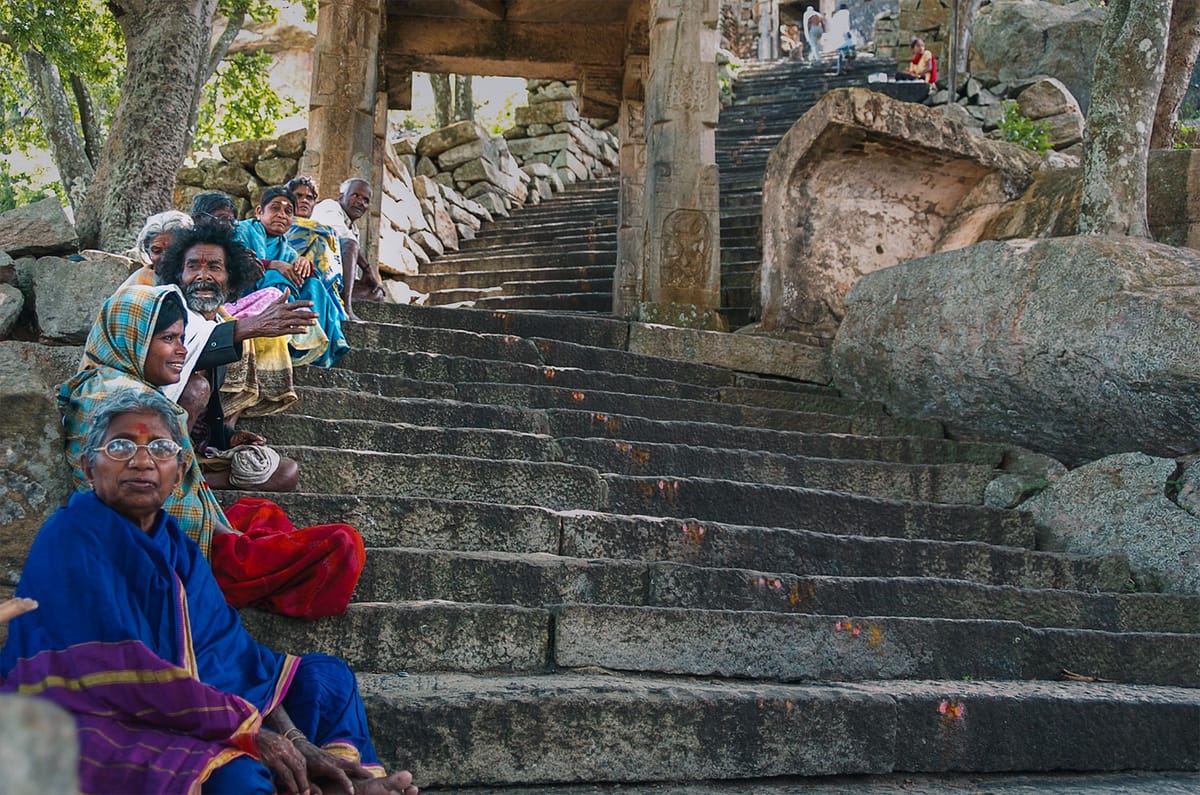Feeling Good and Bad at the Melukote Temple
This temple is a place of pilgrimage on account of the saint Ramanujacharya, who lived in Melukote during the rule of Vishnuvardhana, nine hundred years ago. More recently, the Wodeyars have poured generosity upon it.

From the fork for Melukote and Mandya, when we turned right for Melukote, the air changed, the weight of the world changed. Maybe it was all the play of my mind. I won't argue.
The Melukote temple is held up to the sky by an edgeways-outcrop on top of a hill. The stairs are steep, of large old rock, taken by beggars, one on each step. They cried blessings to us when we approached, but we passed without giving, ready for curses. They were silent. On top, the watchman and others sized us up for paying potential. They must've read profit in us because they opened the gates they'd begun to close. Their speech had polish, but their manner of asking and taking was gross. I struggled not to get cross. Sujaya was in better spirits: "It isn't much to pay them a little."
This temple is a place of pilgrimage on account of the saint Ramanujacharya, who lived in Melukote during the rule of Vishnuvardhana, nine hundred years ago. More recently, the Wodeyars have poured generosity upon it. These days, it is not even clean. Things broken are not repaired, decayed objects are not replaced. A curtain hangs before the deity with the name of the curtain's donor on its middle. A poorly made board atop the dwara bears the names of the deity and the sponsor of the board. Clumsy wiring crisscrosses the walls. A bundle of ropes is dumped on the side of a passageway. The interior is dim. The gloom was intense because of the dark cloud outside and the chill on the stone floor. The deity is intriguing, captivating: I gazed at it and forgot to pray, and now I'm suffering guilt pangs. The poojaris were genuinely devoted when they performed the rituals. After the prayers, a middle-aged poojari ran down the stairs and came prancing back, singing "chick-chick-chick!" I've never seen a more cheerful priest. The prasada was delicious. A large smoke-blackened vessel full of food came from inside the garbha-gudi, and a poojari took a thin white vastra off his moist naked back and spread it carefully over its mouth. He carried the blessed meal to the back where a family who'd offered special prayers waited.
For the way down Sujaya had bought prasada for a few steps of beggars. At the end of the stairs, a child of about six began to play a small keyless harmonium. She sang "anisutide eko indoo" in her childish way, without melody, and shy, but playful. Her face was angelic. I pulled out my wallet and saw I'd no small-change. Sujaya gave her what she had. Yashas protested it is wrong to give. I thought yes, then I thought, maybe not. The temple looked lovely when we looked up at it driving back.